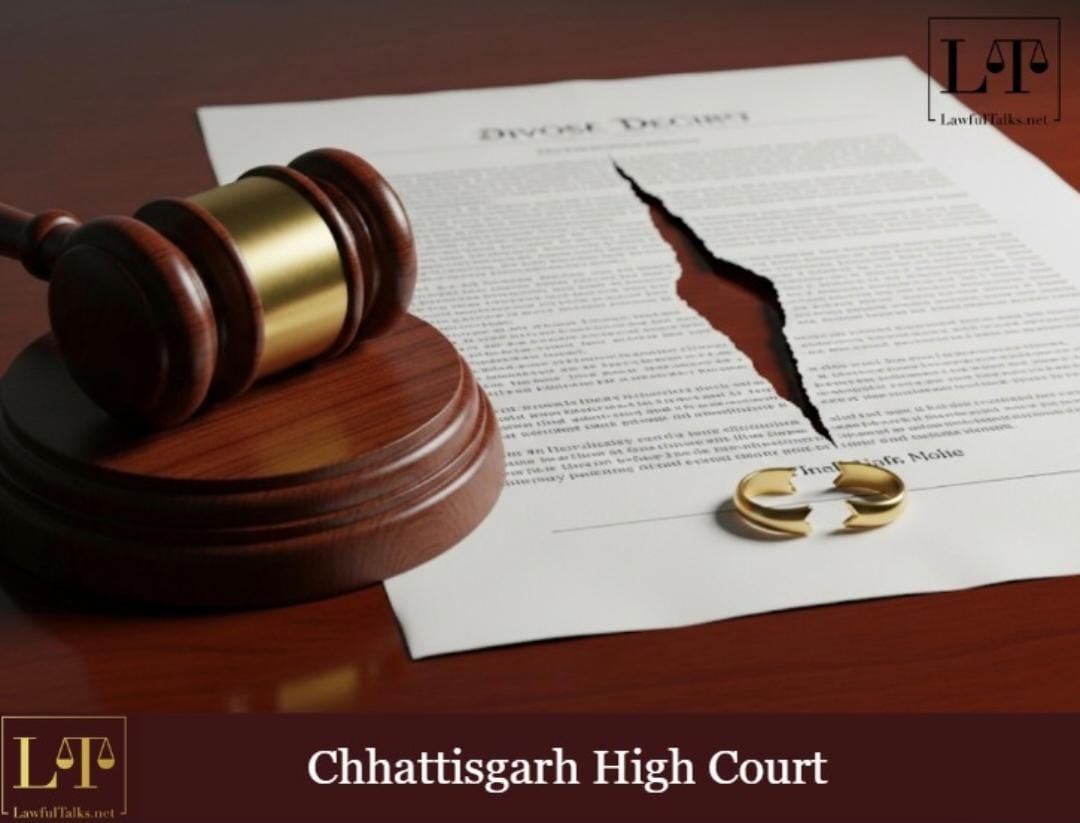Allahabad HC Sets Aside Afzal Ansari's Conviction, Allows Him to Continue as MP

In a recent ruling, the Chhattisgarh High Court clarified that for the annulment of marriage on the grounds of mental illness/ disorder of a spouse, as seen under section 12 (1) (b) of the Hindu Marriage Act, sufficient evidence is required to prove the fact. This can be in the form of a medical expert’s testimony or reports of clinical diagnosis if any.

Facts:
The Appellant and Respondent solemnised their marriage in March 2008, and since then, two children have been born out of wedlock. The appellant alleged that prior to the marriage, the family of the respondent represented her to be of a sound mental capacity.
However, following the marriage the appellant noticed that the respondent’s behaviour was unbecoming and not what was reasonably expected of someone who is normal. These included shouting, using abusive language, damaging furniture and beating their children without cause.
Her medical examination revealed that she suffered from schizophrenia. Subsequent to this, she left her matrimonial home and has not returned since October 2018. Thereafter the husband filed 2 petitions, one was under section 12 (1) (b) of the Hindu Marriage Act for fraud, and under section 13 (1) (ia) and (ib), of the Hindu Marriage Act.
The Family court dismissed his application for divorce, due to the lack of evidence to support that the respondent has had schizophrenia since birth.
The bench of the High Court agreed with the family court’s ruling and said that except for certain medical prescriptions, there is no substantive evidence to establish that the wife suffered from schizophrenia even prior to the marriage apart from some medical prescriptions.
The bench of Justice Rajani Dubey and Justice Amitendra Kishore Prasad noted that,
“In matrimonial proceedings seeking annulment of marriage on the ground of mental incapacity, it is incumbent upon the petitioner to establish, through clear and convincing evidence, that the respondent was suffering from a mental disorder of such a nature or to such an extent as to be unfit for marriage and procreation of children. In the absence of any medical expert's testimony, and without any clinical diagnosis confirmed by competent witnesses, such a serious ground cannot be accepted as proved.”
The court further added that while the respondent was examined by two psychiatrists, neither appeared as witness for the case. There was also no concrete clinical record or certificate of diagnosis to prove that the respondent was suffering from schizophrenia or any other mental illness.
Using the case of Sm. Anima Roy v. Probodh Mohan Roy (1968) as precedent, the court held that in the absence of a testimony of a medical expert, and without the examination of doctors , it is not possible for the court to draw a conclusion regarding the mental capacity of the spouse only based on a medical prescription.
Conclusively, the court observed that,
“The law is now well settled that in proceedings under Section 12 of the Hindu Marriage Act, 1955 the burden lies heavily on the appellant to prove the foundational facts justifying annulment of marriage. The mere filing of prescriptions or absence of rebuttal by the respondent does not absolve the appellant from discharging the burden of proof through cogent and trustworthy evidence,”
The petition to annul the marriage was therefore dismissed .
Corram: Justice Rajani Dubey and Justice Amitendra Kishore Prasad
Case name: FA(MAT) No. 55 of 2023
Counsel for the Appellant: Mr. Tapan Kumar Chandra, Advocate
Counsel for the Respondent: Mr. Pushkar Sinha, Advocate

Manasvi Sharma
Legal Intern, 2nd Year, NLIU Bhopal
Latest Posts
Categories
- International News 19 Posts
- Supreme Court 347 Posts
- High Courts 362 Posts



















































































































































































































































































































































































































































































































































































































































































































































